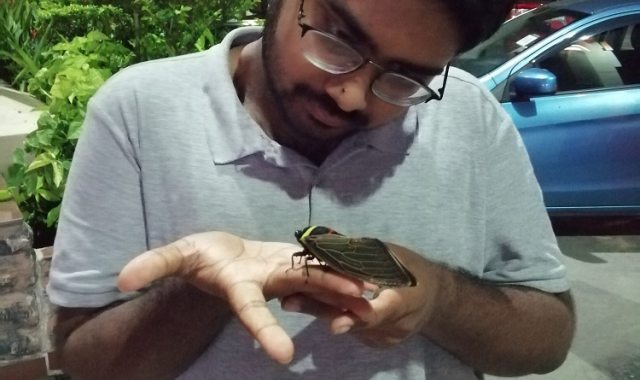The Revd Canon Adrian Daffern Whitsunday 2023
In nomine
It is said of the late Sir Denis Thatcher, loyal husband of the Iron Lady herself, Margaret, that he enjoyed a drink. It may be that the two facts are not unconnected. Indeed, it is said that Sir Denis had an entire vocabulary of his own to reflect the order in which the day’s beverages would be consumed. Apparently he began with an opener, followed by a brightener. Then came a lifter (this was a large gin and tonic without the tonic); a snifter, a short, and then a snorter. Finally, a snortorino, which more or less empties the bottle in one go. Sir Denis, it should be said, lived to be nearly 90.
It is not recorded what he felt like after such imbibings, but I imagine it was not far off what was being described by the prophet Joel in our first reading tonight.
I will show portents in the heavens and on the earth,
blood and fire and columns of smoke.
The sun shall be turned to darkness, and the moon to blood.
I must confess I’ve sometimes woken up with a head like that. I am certain that we can at least be assured tonight that the good people of Blofield have never befallen such a fate. As to the esteemed Fellows and scholars of this godly, righteous, and sober college, discretion is the better part of valour – especially as I am hoping for a few more dinners before Megan and I leave for Wells.
The portents – which are very much at the top end of the scale in so far as portents go – are not only mentioned by the prophet Joel, but are the go-to text for Luke in his account of the day very first Whitsunday in our second reading.
We picked up the story immediately after the account of the giving of the Spirit, and its miraculous Pentecostal consequence. The apostles and Jesus’ mother were in one place. The house is filled with the sound of a tornado. They’re heads are set on fire, but they are not burnt. And then comes tonight’s anthem, as they speak in many languages of the great works of God. Babel is reversed and, as such, it follows that the peaceable kingdom of God is a political possibility, as well as a theological truth.
The miracle is immediately trolled. They were made fun of, and the reason for the portent was scornfully suggested: they have had too much wine. You need a few snorterinos, surely, to produce a cacophony like that.
And they were indeed intoxicated. But on a very different kind of Spirit. The kind that enables sons and daughters to prophesy, the old to dream dreams, and the young to see visions. Auden said that Pentecost gave men the gift of ears. It is the primary festival of communication, of speech and sound, hearing and listening. Tongues of fire, and felicity of tongues, a divine broadcast via all-too-human transmission. The voice of God sounded in a most holy racket. Loquebantur indeed.
As we emerge from this holy hangover, we peer blearily at the texts, and find other strata. Indeed, Joel’s prophecy speaks first of hope for the very earth itself
Do not fear, O soil; be glad and rejoice, for the Lord has done great things!
Then come the animals
Do not fear, you animals of the field, for the pastures of the wilderness are green;
the tree bears its fruit, the fig tree and vine give their full yield.
And only then the people
O children of Zion, be glad and rejoice in the Lord your God;
for he has given the early rain for your vindication,
he has poured down for you abundant rain,
the early and the later rain, as before.
There had been a climate catastrophe. Crops had failed, and drought and plagues of locusts had ravaged the land. This was seen as a portent of divine anger, which would be replaced by an outpouring of the breath of God and an abundant yield.
So why is this the text that Peter preaches to the crowd on the first Whitsunday? There are loads of much easier, more pertinent, breath/Spirit references in the Tanakh, the Hebrew Scriptures. Why Joel?
I hope it’s not eisegetical if I aver that there is an interpretation that is screaming at us out of these scriptures if our ears, like those of the Jerusalem crowd, can tune into the language. For do we not have portents now, in the heavens and the earth? The hoppers, destroyers, and cutters of war and greed? The waters of our world, oceans, and streams, polluted and despoiled? Men and women, the sons and daughters of this age, disfigured in their dreams and visions by the attacks of the blinkered on their God-given selves and souls?
Perhaps. Those of us who love Francis of Assisi, the nearest any human being has ever come to a true interpretation of Christ, see in his love songs to creation that the portents are real, and require our response. If we ignore them, how dare we claim to hear the Spirit’s voice?
And what of our own understanding of this day, these texts, this music, this miracle? What does it mean to celebrate divine drunkenness which transforms fishermen into firebrands?
Is it simply this: that our cynicism and world-weariness must cease if we are to truly live; and to truly live, we must truly breathe. The Breath of God comes sweeping through us. Are we sensitive enough to feel it? Love divine comes down and seeks our souls. Are we open enough to receive it? The Spirit of the Living God falls afresh on us, this day, and every day. Dare we pray that Spirit to melt us, mould us, shape us into the likeness of Christ?
John V. Taylor was Bishop of Winchester from 1974-1985. They don’t make bishops like him anymore. He called his book about the Holy Spirit ‘The Go-Between God’, and it is the finest piece of Anglican pneumatology ever written. He writes this:
The Spirit does not give himself where our encounters are glib, masked exchanges of second-hand thoughts. Our defences must be down, broken by either intense joy, or by despair.
There will be few in this Chapel tonight who are alien to those two states of being. You may be experiencing intense joy right now – and the knowledge that I’m about to finish may help. But it may be that despair is a closer description of what is going on for you. Pentecost is the Feast when the despairing and the joyful are both reassured – for the brokenness which is all too often our condition is useful to God’s Spirit: when lowliness becomes our inner clothing, the Sprit’s wisdom knows what She must do do. And as we are infused by her Grace, so do we: taste of her bouquet, and drink deep.
For the world must change, and we must change it, and only the infusion of the Spirit will provide the grace and power to make us - make it - happen.
Veni Sancte Spiritus.
Amen.


